Explore delicious and gut-friendly snack ideas for those managing irritable bowel syndrome (IBS).
Living with irritable bowel syndrome (IBS) doesn’t mean having to sacrifice delicious snacks. With careful selection and a little creativity, you can enjoy a variety of tasty treats that won’t upset your digestive system.
This article provides a comprehensive list of snack ideas, specifically designed for those managing IBS. From fiber-filled fruits to protein-packed nuts and seeds, we’ve got you covered.
We delve into the details of each snack option, explaining why they’re a good fit for an IBS-friendly diet. So, whether you’re looking for a quick bite or a hearty treat, keep reading to discover an array of snacks that are both satisfying and kind to your gut.
Rice Cakes With Peanut Butter
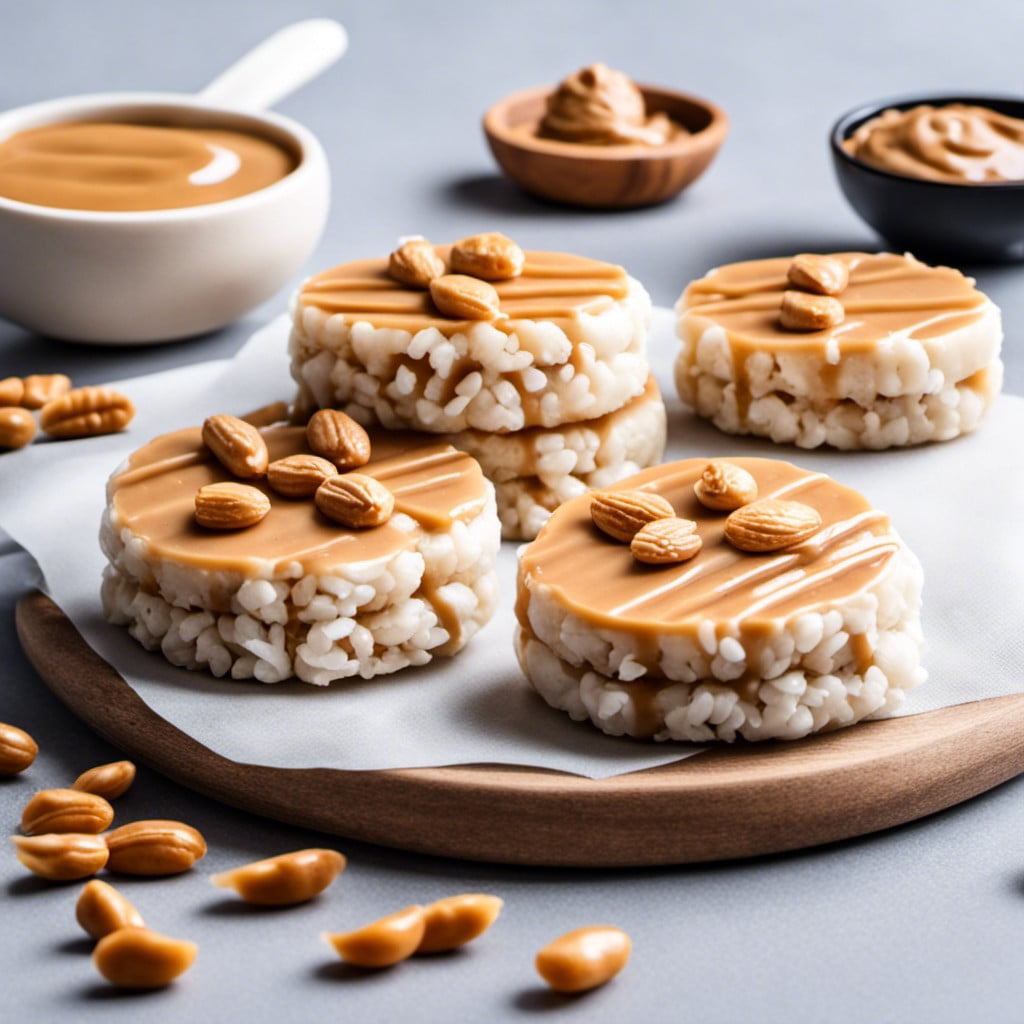
Peanut butter, a protein-packed spread, complements the subtle flavors of a light, crunchy rice cake perfectly.
This combo ensures a satisfying snack that doesn’t overwhelm the digestive system.
The amount of peanut butter used is crucial – a thin layer should suffice, providing a taste infusion without adding excessive fat content.
Peanut butter is also rich in fibers, which could aid in digestion.
Consider garnishing with a few slices of banana or a sprinkle of chia seeds for added nutritional benefits.
However, you should make sure your peanut butter contains no added sugars or harmful additives as those could trigger an IBS flare-up.
Gluten-free Oat Bars
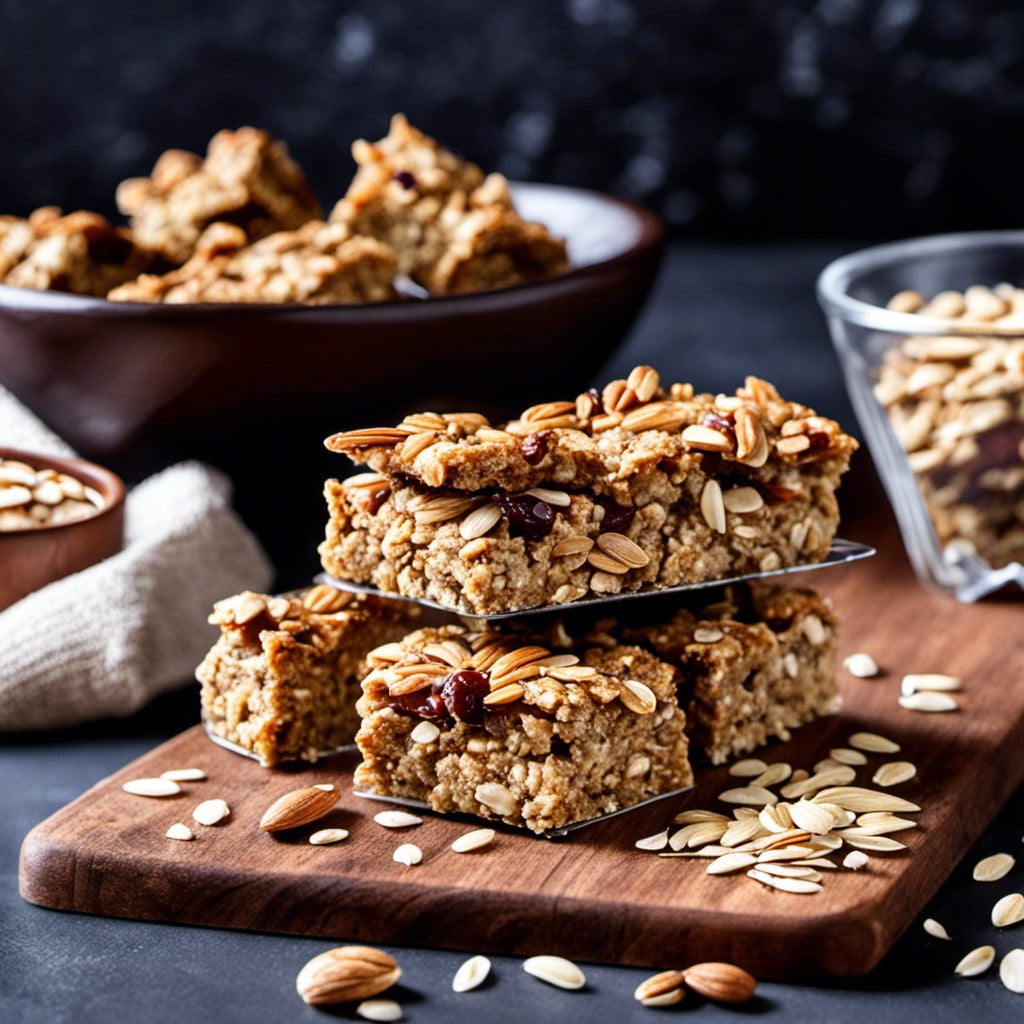
Packed with beneficial fibers, these bars make an excellent snack option.
First, ensure your oats are labelled gluten-free as not all varieties guarantee the absence of gluten.
Adding your favorite dried fruits or nuts can provide a healthy dose of protein and satisfying crunch.
Try incorporating bananas or unsweetened applesauce as natural sweeteners to avoid heavily-processed sugars.
The overall preparation time is less than 30 minutes with a baking duration of 20 minutes.
Enjoy the bars as a mid-morning snack or late afternoon treat.
Store leftover bars in an airtight container for up to 5 days to keep them fresh and delicious.
Almond Butter On Whole Grain Toast
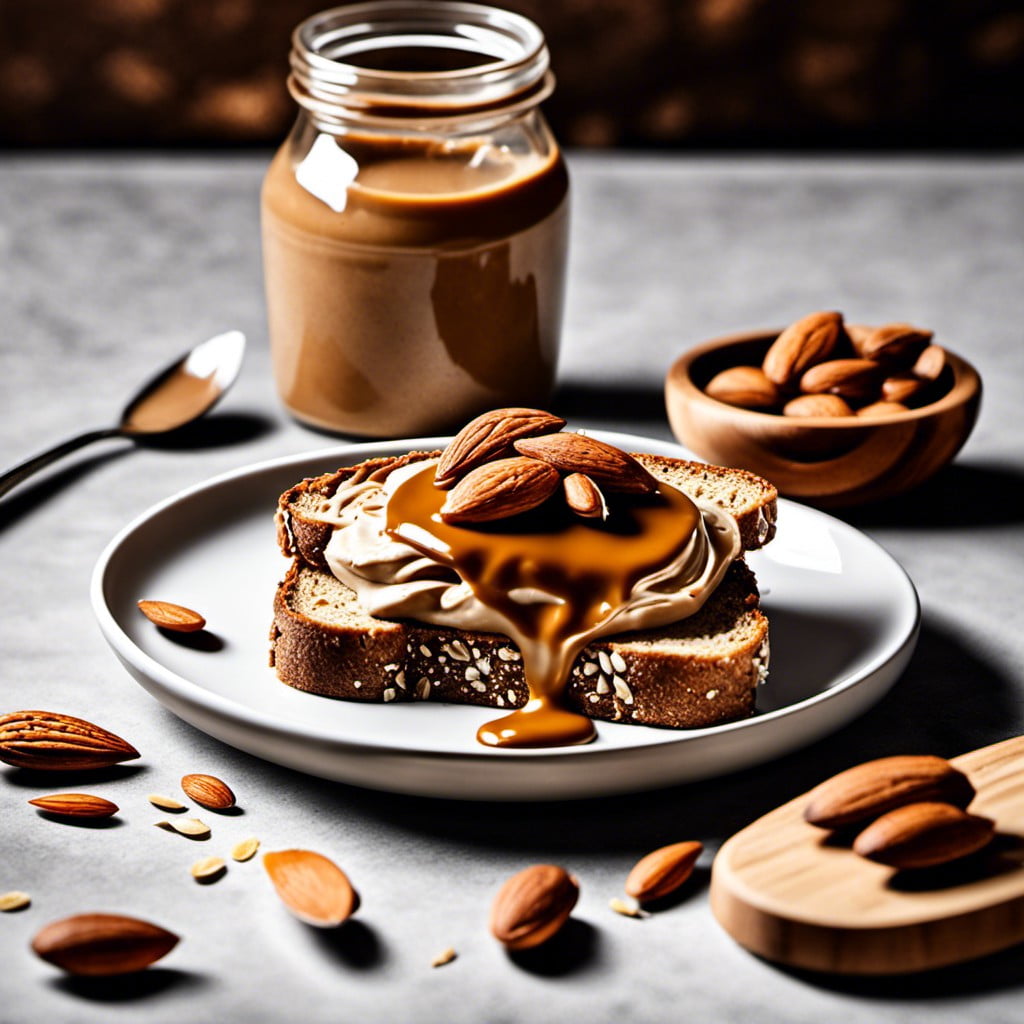
Replete with essential nutrients, almond butter serves as a wonderful source of healthy fats, fiber, magnesium, and Vitamin E. Its creamy texture and rich flavor complement the heartiness of whole grain toast remarkably well – not to mention the satisfying crunch that adds an exciting dimension to the snack.
Whole grain products are favored for their high fiber content, which aids the digestive process, an important factor for those with irritable bowel syndrome (IBS). The combination of almond butter on whole grain toast provides sufficient energy and satisfies hunger, without causing discomfort or irritation to the gut.
Note: Check that your whole grain toast is low in FODMAPs to ensure it is IBS-friendly. There’s a variety of low-FODMAP breads available in the market now or you could opt for homemade ones.
While diet impact varies from person to person, this particular snack idea effectively marries taste and health, delivering a solid nutritional profile that’s beneficial for individuals with IBS, and happens to be quite delicious too.
Greek Yogurt With Blueberries
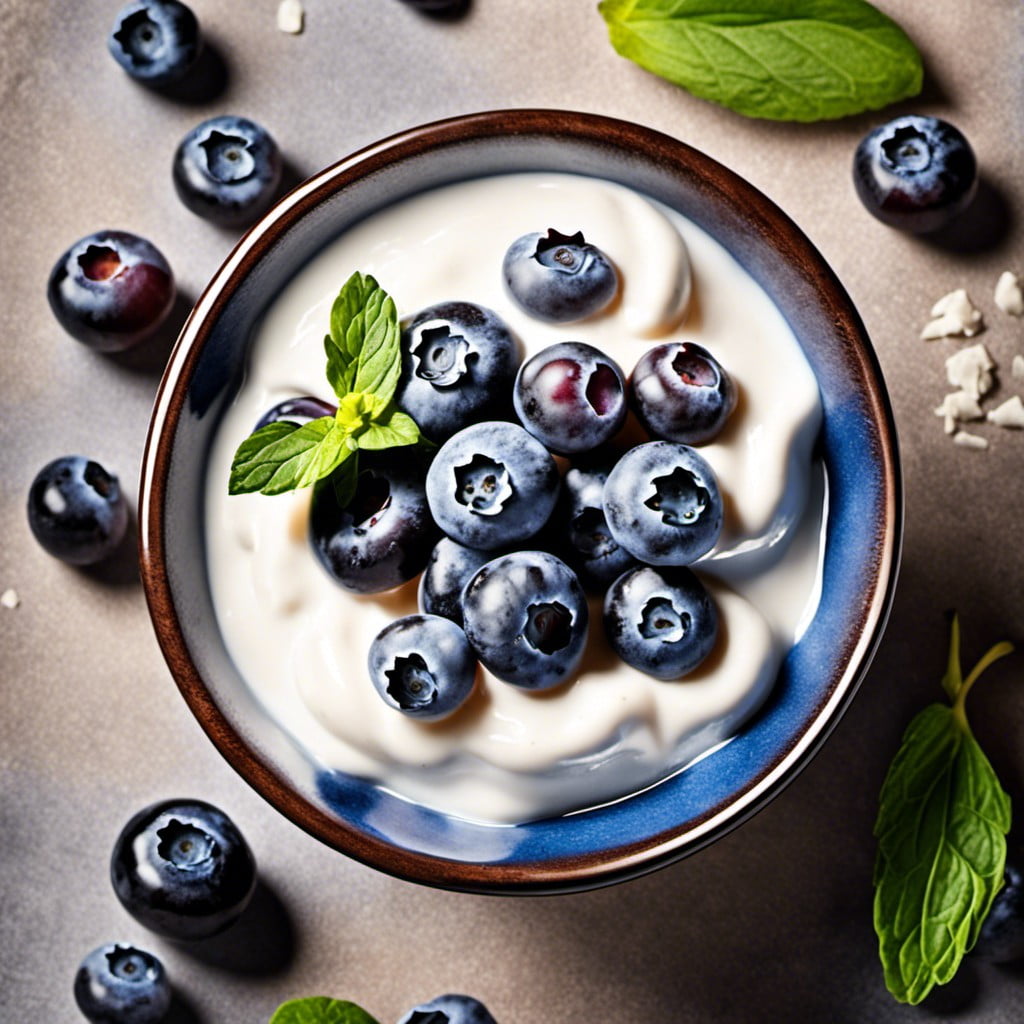
This scrumptious, yet simple duo not only satiates hunger pangs but also offers considerable nutritional value. Greek yogurt is packed with probiotics, great for promoting gut health and improving symptoms of IBS. It’s also rich in protein, providing sustainable energy levels throughout the day.
Complementing the creamy yogurt, blueberries bring a burst of flavor and plenty of antioxidants to this snack. They are low-FODMAP fruits, meaning they are less likely to trigger IBS symptoms. Just remember, moderation is key. Stick to less than a 1/4 cup serving of blueberries as more could be high in FODMAPs.
You can enjoy this wholesome snack on its own or sprinkle it with a handful of low-FODMAP granola for a crunch!
Chia Seed Pudding
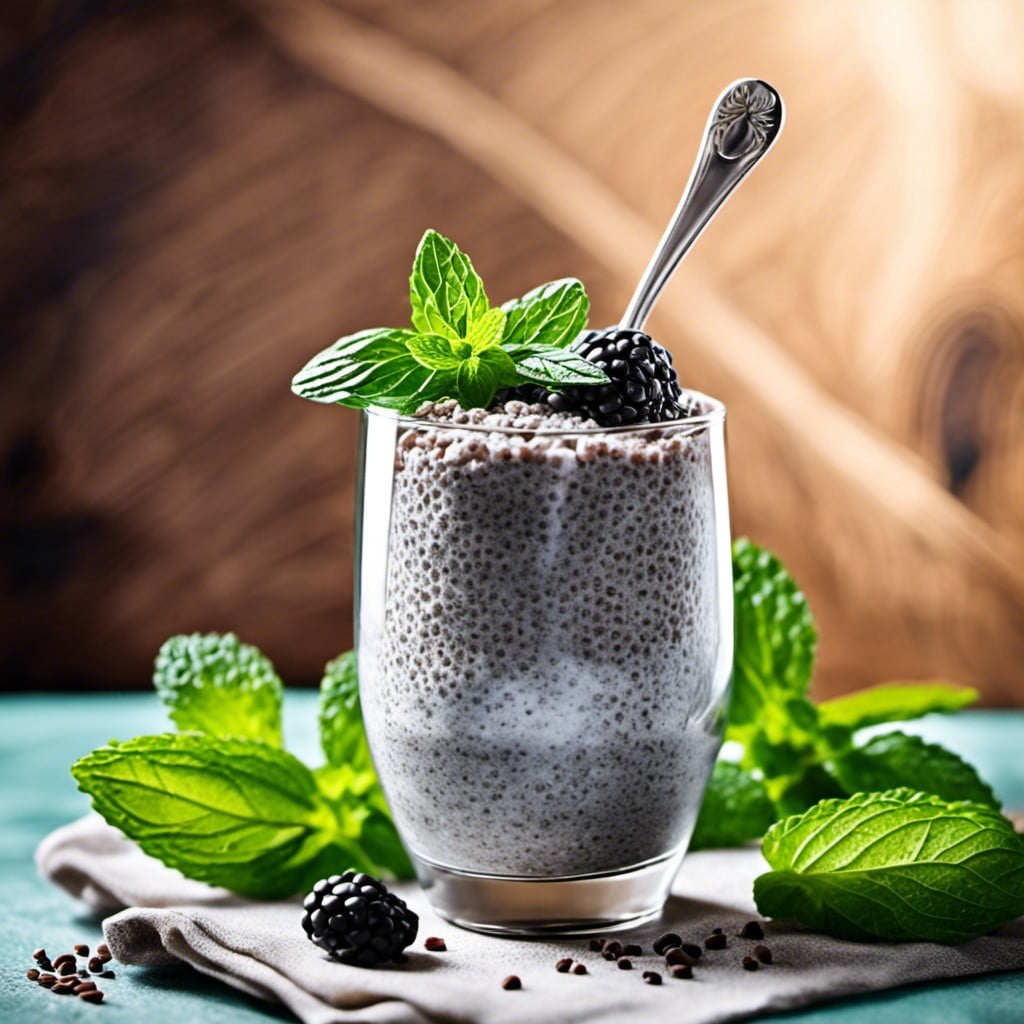
High in fiber and antioxidants, chia seeds make an ideal snack for those managing IBS symptoms. When soaked in a liquid, usually a kind of milk, they expand and form a pudding-like consistency. This versatile dessert or snack can cater to personal preferences and dietary restrictions.
Pairing chia seed pudding with low-FODMAP fruits such as blueberries, strawberries or kiwis can add a punch of flavor and additional nutrients. Sweeteners can also be used to enhance the taste. But remember to choose those safe for IBS sufferers, such as pure maple syrup or a sprinkle of cinnamon.
For preparation, combine the seeds with your choice of low lactose or lactose-free milk, such as almond, coconut, or rice milk, and refrigerate overnight. The seeds will expand, absorbing the liquid to form a gel-like texture. This pudding can be stored for up to five days in the fridge, making it a convenient option. But note, portion control is key – the high-fiber content might exacerbate IBS symptoms if consumed in large quantities. Stick to a serve size of about two tablespoons of dry seeds.
Baked Sweet Potato Wedges
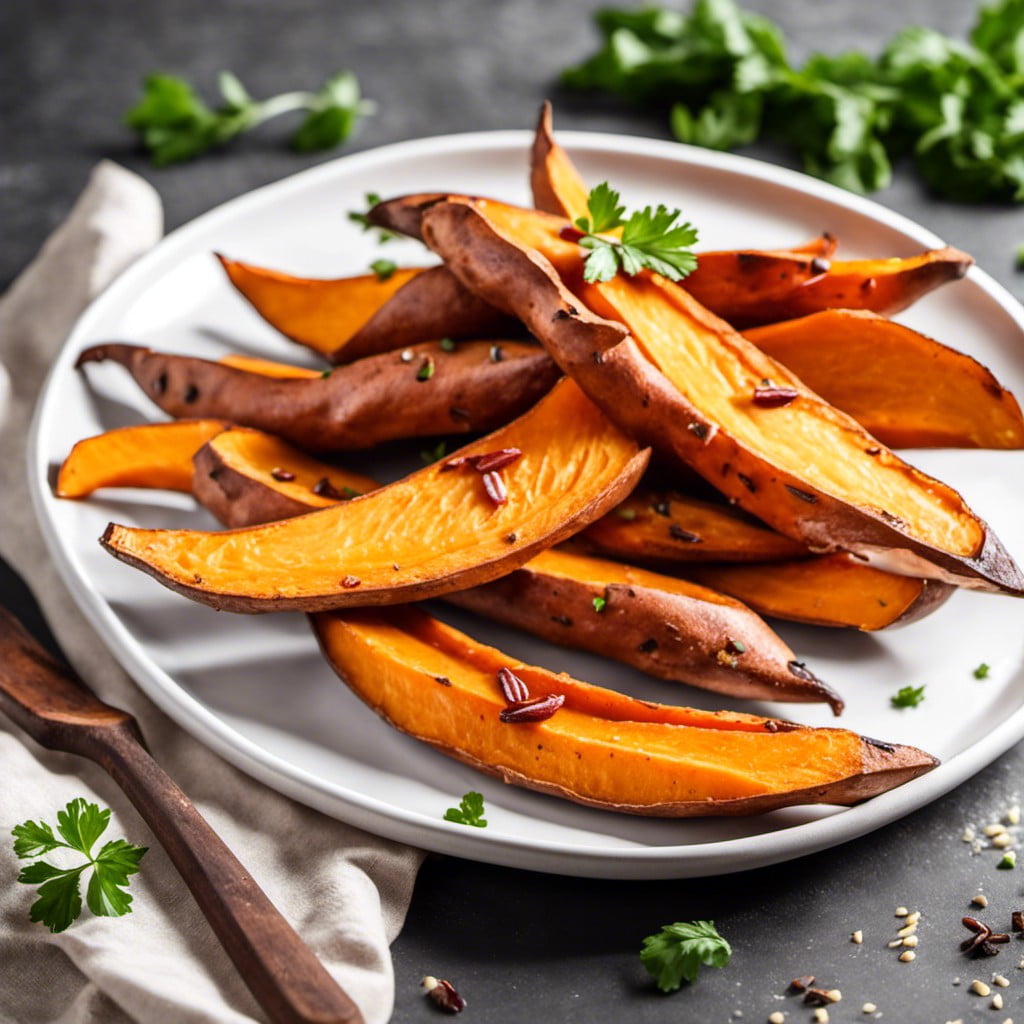
These wedges are not just delicious but also packed with nutrients including Vitamin A, fiber, and potassium.
To prepare, preheat the oven to 400°F (200°C). Start by washing and drying your sweet potatoes thoroughly. Cut each potato lengthways into wedges or desired size and place them in a large bowl. Drizzle a tablespoon of olive oil over them and sprinkle with some salt, pepper, and cinnamon. Toss them well to ensure they’re evenly coated.
Spread the wedges out on a baking sheet allowing some room between each one for even baking. Bake for 25-30 minutes. Flip the wedges half-way through the cooking time to ensure they are evenly cooked. Voila! They’re ready to serve.
These wedges could be enjoyed alone or with a dip of your choice. They offer a filling, nutritious option that complements the dietary needs of someone with IBS.
Steamed Carrots or Zucchini
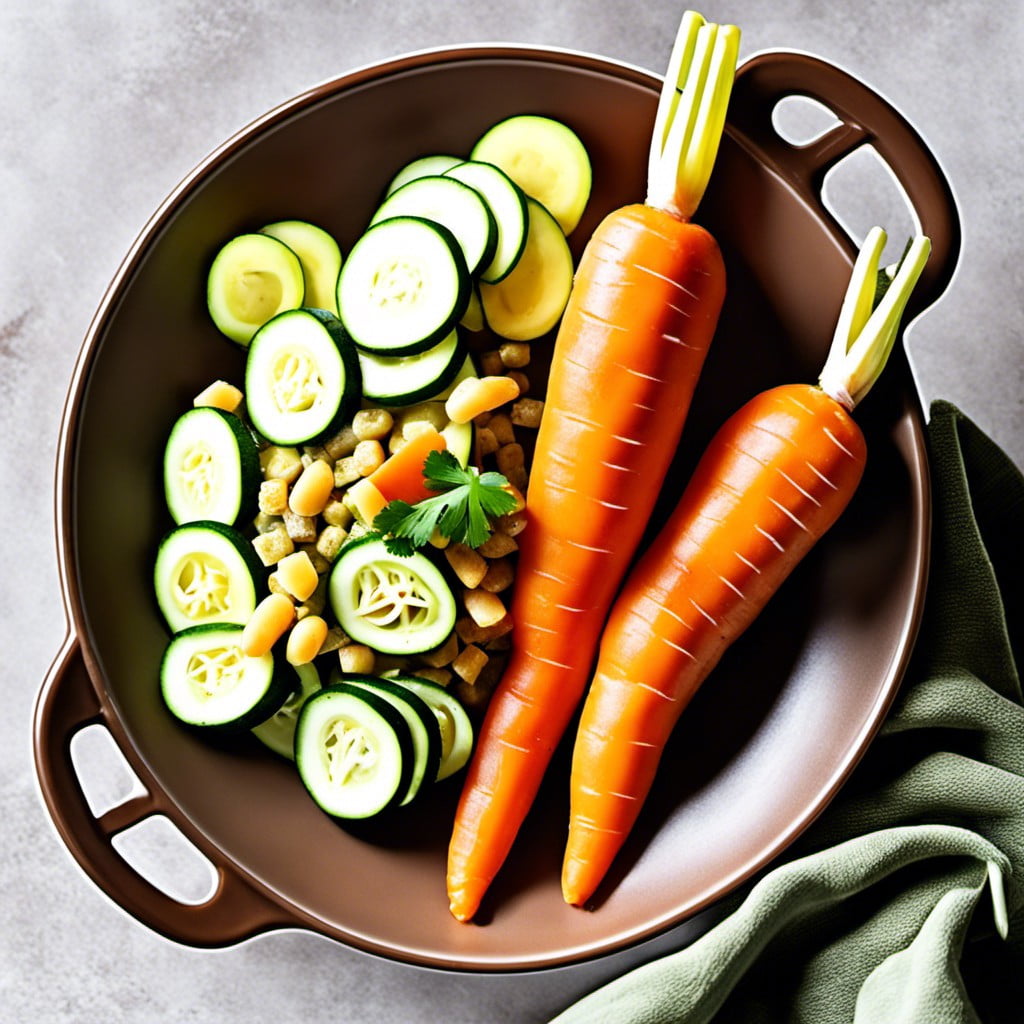
When it comes to comfort, simplicity, and digestibility, steamed vegetables fit the bill perfectly. Equally good on their own or as part of a more complex dish, they are a fabulous addition to your IBS-friendly snack rotation.
Steaming essentially means cooking in water vapor. It preserves more nutrients than many other cooking methods, enhancing the health benefits of vegetables. In the case of carrots and zucchini, steaming softens their fiber structure, which can make them easier for individuals with IBS to digest.
Carrots bring not only vibrant color but also a natural sweetness to your plate. They’re rich in beta carotene and Vitamin A, promoting good vision and a healthy immune system.
Zucchini, on the other hand, is a powerhouse of antioxidants. It’s high in water content and low in calories, which can aid in maintaining a healthy weight. Additionally, zucchini is a great source of Vitamin C and Potassium.
While these vegetables can be consumed individually after steaming, there’s room for creativity. For some added zest, try seasoning with a hint of sea salt and a sprinkle of dill or basil. Remember to keep the spices light and opt for ones that are safe for sensitive stomachs.
Note that everyone’s tolerance is different when it comes to IBS, so it’s crucial to monitor how your body responds to different foods and adjust your diet accordingly.
Gluten-free Crackers With Guacamole
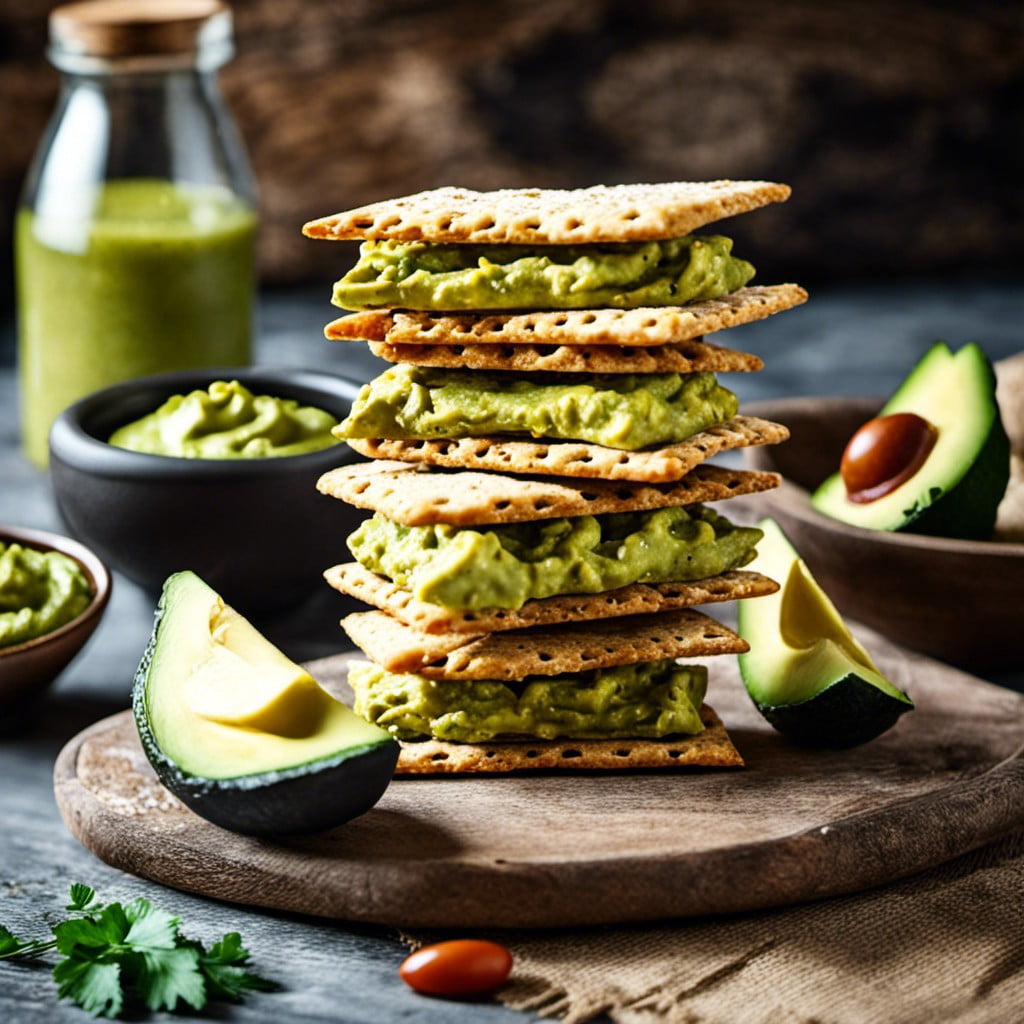
Embracing the crunch of gluten-free crackers paired with the creamy richness of guacamole offers both satisfying texture and taste. The crackers, typically made with rice or corn flour, provide a safe snack alternative for those with IBS, avoiding typical gluten-based triggers. Meanwhile, guacamole – a blend of ripe avocados, lime juice, and herbs – gives a boost of healthy monounsaturated fats, essential for gut health.
While selecting your crackers, look for versions with minimal additives or preservatives, to ensure the snack doesn’t complicate your IBS symptoms. Similarly, for the guacamole, fresh homemade versions trump store-bought, allowing you to control the ingredients better. Adding tomatoes or onions, which are high in FODMAPs, may trigger symptoms in some individuals, so their omission is advisable.
Pair this snack together, respecting portion sizes, for a nutritious, easy-to-digest choice. Remember, while snacking is essential in an IBS diet, keeping a balanced, varied intake of foods is crucial.
Remember, enjoying your food can and should still be a part of your life, despite IBS. Instead of focusing on food restrictions, find joy in exploring new combinations and flavors that your system can tolerate. Having food intolerance doesn’t mean saying goodbye to delicious treats!
Low-FODMAP Fruit Like Bananas or Oranges
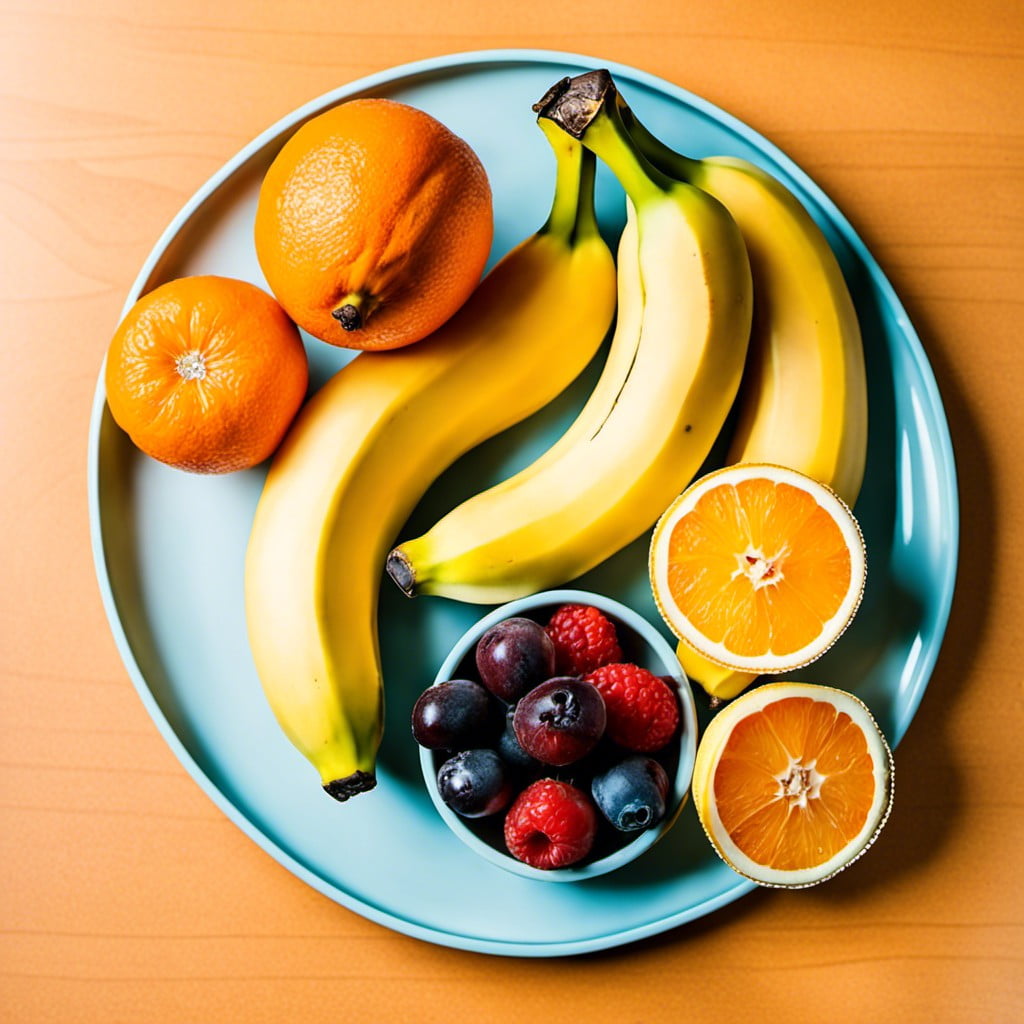
Brilliant for providing a burst of energy, bananas are a versatile snack ideal for those managing IBS symptoms. Whether consumed alone or sliced and added to gluten-free cereal, this creamy soft-textured fruit is low in FODMAPs, the types of carbohydrates known to trigger IBS symptoms.
Turning our attention to citrus, oranges make the cut, too. Bursting with refreshing juice, low in FODMAPs, and loaded with fiber, they are beneficial for digestion. Eating the fruit, rather than drinking the juice, delivers more fiber and less sugar, assisting in maintaining a balanced gut environment.
Remember though, everyone is different, so what works well for some may not work for others. Tracking your body’s reaction to different foods can help tailor an approach that fits your personal needs and gut health best.
Boiled Eggs
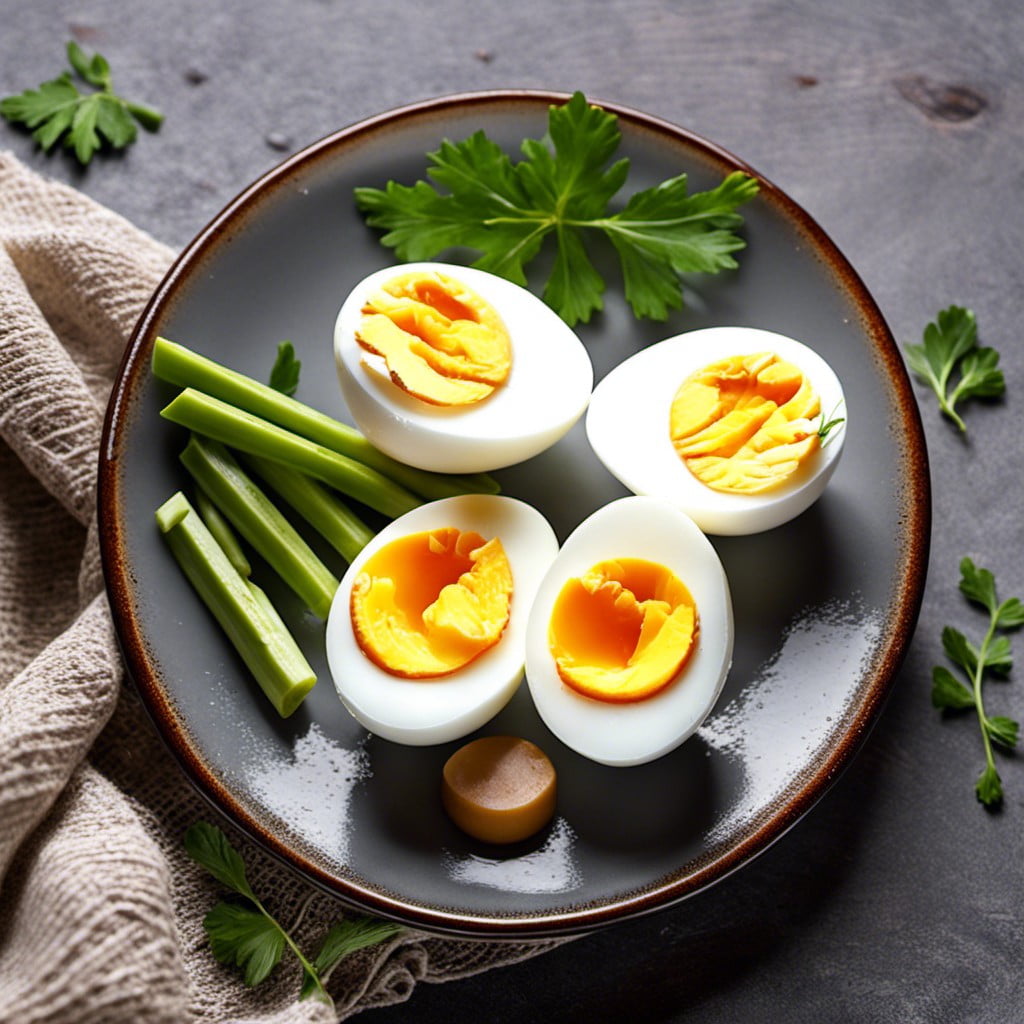
Rich in vitamins and minerals, eggs are a versatile snack suitable for individuals with irritable bowel syndrome (IBS). The boiling process ensures the egg is cooked delicately, helping to maintain its nutritional integrity.
Boiled eggs are an excellent source of protein, keeping you full between meals and thus preventing unnecessary snacking. They also contain essential nutrients like vitamin B12 and choline, both of which are crucial for brain health.
Make sure to consume them in moderation as part of a balanced diet. For those prone to digestive discomfort, consider enjoying them without the yolk, which can sometimes be harder to digest.
For an easy, on-the-go snack, store a few boiled eggs in the fridge, ready to be peeled and eaten. Pair them with a low-FODMAP fruit or grain for a balanced, IBS-friendly snack.
Rice Porridge With Cinnamon
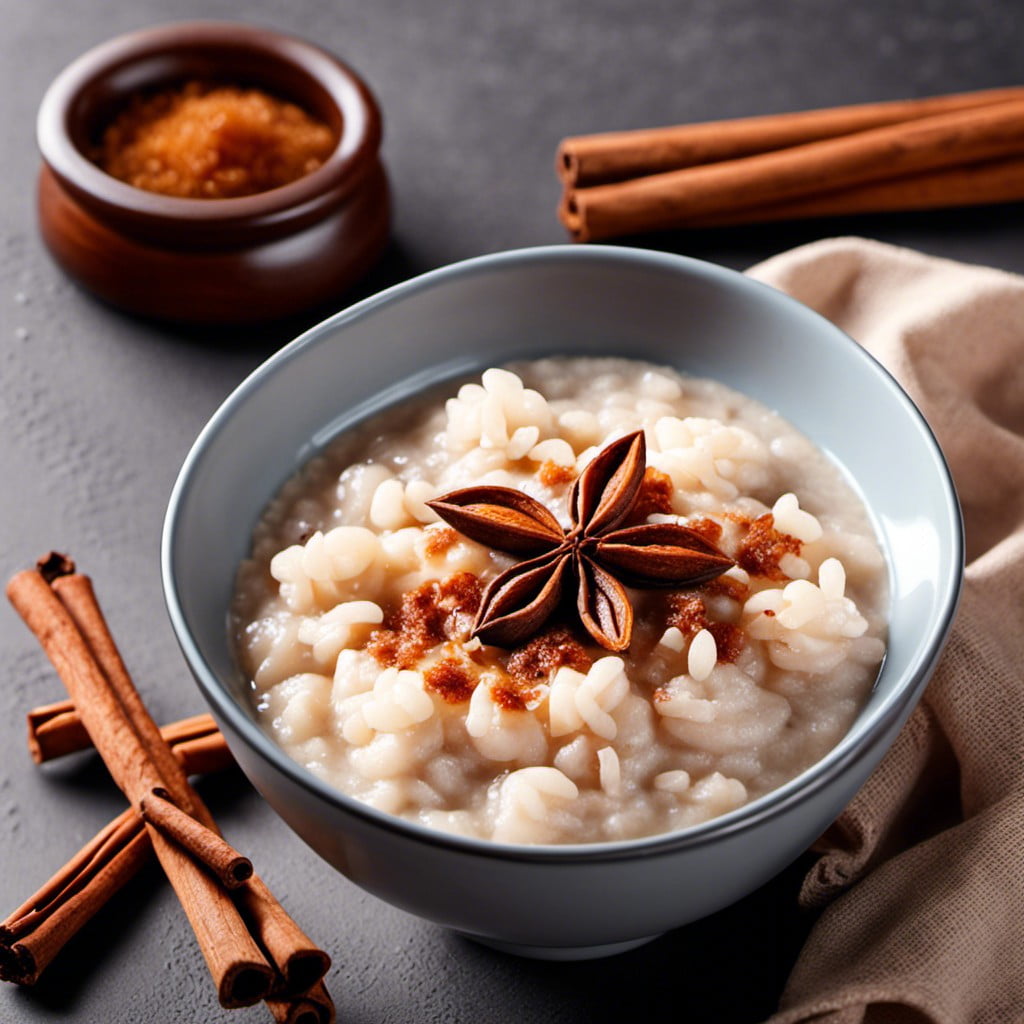
This comforting dish makes a wonderful snack for those dealing with IBS. Using rice as the base provides an easily digestible grain that’s low in fiber and should not irritate the gut. The natural sweetness of rice can be enhanced with a sprinkle of cinnamon, which not only adds a touch of warmth and depth to the simple porridge, but also has known anti-inflammatory properties that can help soothe the digestive system.
Preparation is quite straightforward: simply boil rice in water or a low-fat, lactose-free milk alternative, such as almond milk, until it reaches a tender, creamy consistency. Sweeten lightly with maple syrup or brown sugar if desired, then finish with a dash of cinnamon.
It’s a quick, satisfying snack that offers a balance of carbohydrates and anti-inflammatory benefits in a light, easy-to-digest form. And the customizability of this porridge allows you to add other IBS-friendly ingredients, like a small dollop of peanut butter or a handful of low-FODMAP berries, to diversify taste and nutritional profile. A bowl of this porridge could be just what you need to keep your hunger at bay without flaring up any IBS symptoms.
Quinoa Salad
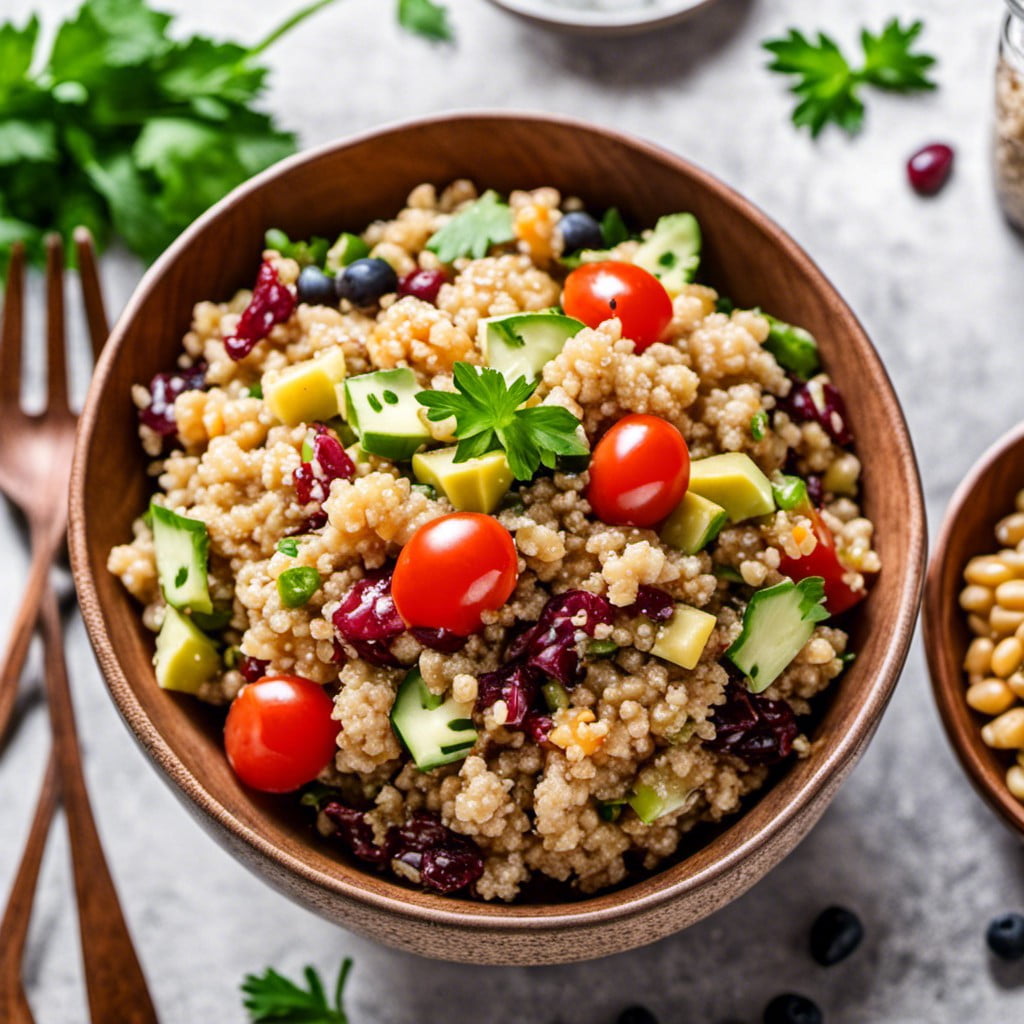
Prepared with fresh crisp vegetables like cucumber, bell peppers, and tomatoes, Quinoa salad poses as a scrumptious solution for snack emergencies. A high-protein grain, quinoa not only satiates the hunger pangs but also keeps the IBS symptoms at bay. Coupled with the crunch of veggies, it provides both nutritional balance and variety of texture.
Consider a simple dressing of olive oil, a hint of lemon juice, and your preferred herbs, ensuring a low FODMAP input. For an additional protein punch, consider adding boiled chicken or tofu. Remember to cook quinoa thoroughly and rinse before cooking to eliminate the substance called saponin, which can sometimes contribute to digestive issues. Preparation is uncomplicated, and the result is a light, flavorful snack that harmonizes with the IBS dietary guidelines.
Do keep in mind, individual tolerances to various food items can differ among IBS sufferers. While quinoa is generally well-tolerated, modify the vegetables and protein per your specific diet requirements. Variation is key, so try out different mixes and flavors to keep this quinoa salad enjoyable.
Remember to gauge your body’s reaction post consumption, noting any discomfort or intolerances to make sure your snack-time remains enjoyable while still supporting your digestive health.
Low-FODMAP Granola
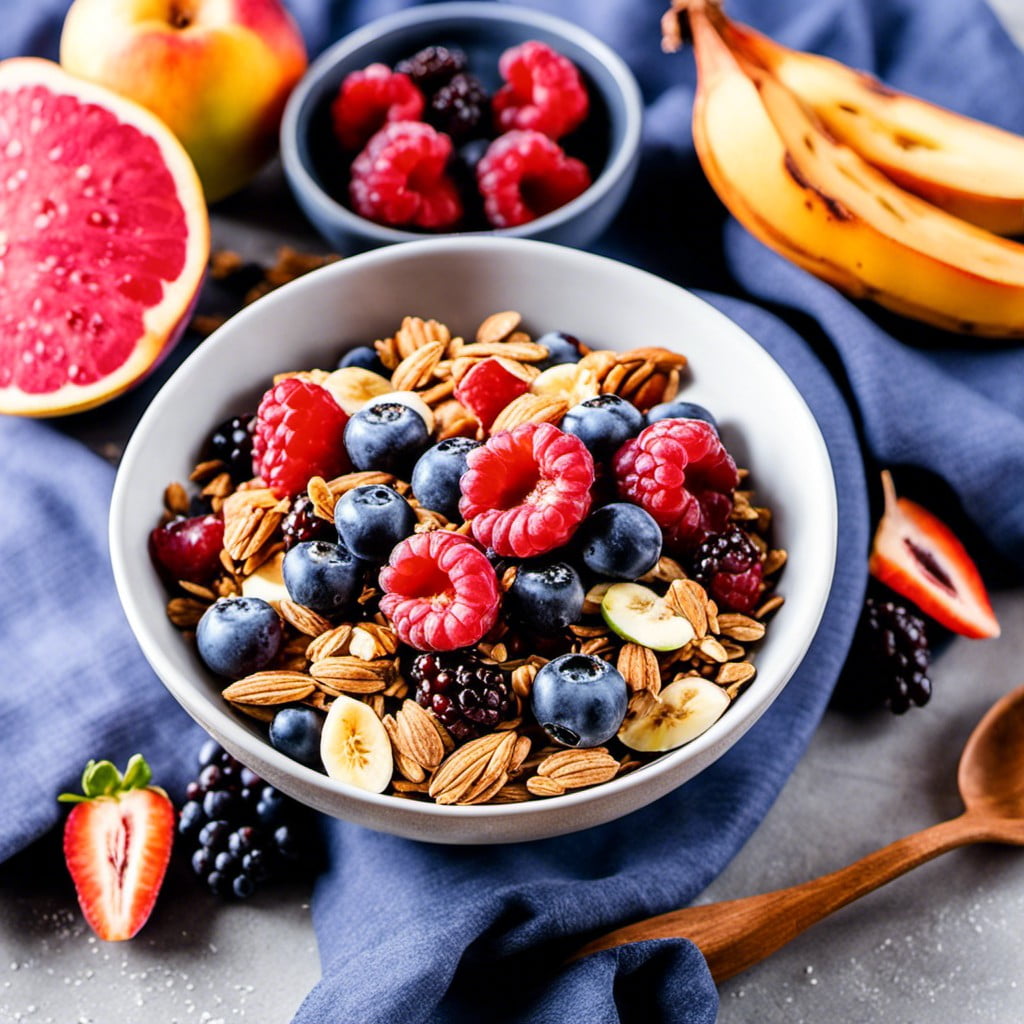
Choosing the right granola for a low-FODMAP diet can make all the difference. Here’s what to keep in mind:
- Check for high-FODMAP ingredients: These include honey, agave, and cashews. Opt for granolas made without these.
- Stick to respectable portion sizes: Even low-FODMAP foods can trigger symptoms if consumed in excess.
Oats should be the primary ingredient: Certified gluten-free oats are a safe choice.
Favor natural sweeteners: Opt for granolas sweetened with pure maple syrup or brown rice syrup.
Watch for hidden FODMAPs: Chicory root, inulin, and apple or pear concentrates can sneak into the mix and cause discomfort.
Making your own granola at home can be an excellent way to control ingredients. Mix together oats, a pinch of salt, cinnamon, and your preferred low-FODMAP nuts and seeds. Throw in a handful of dried cranberries or raspberries for an added sweet touch before baking until golden. Once cooled, store it and enjoy with Greek yoghurt or as a snack straightforwardly.
Spinach Smoothie With a Non-dairy Base
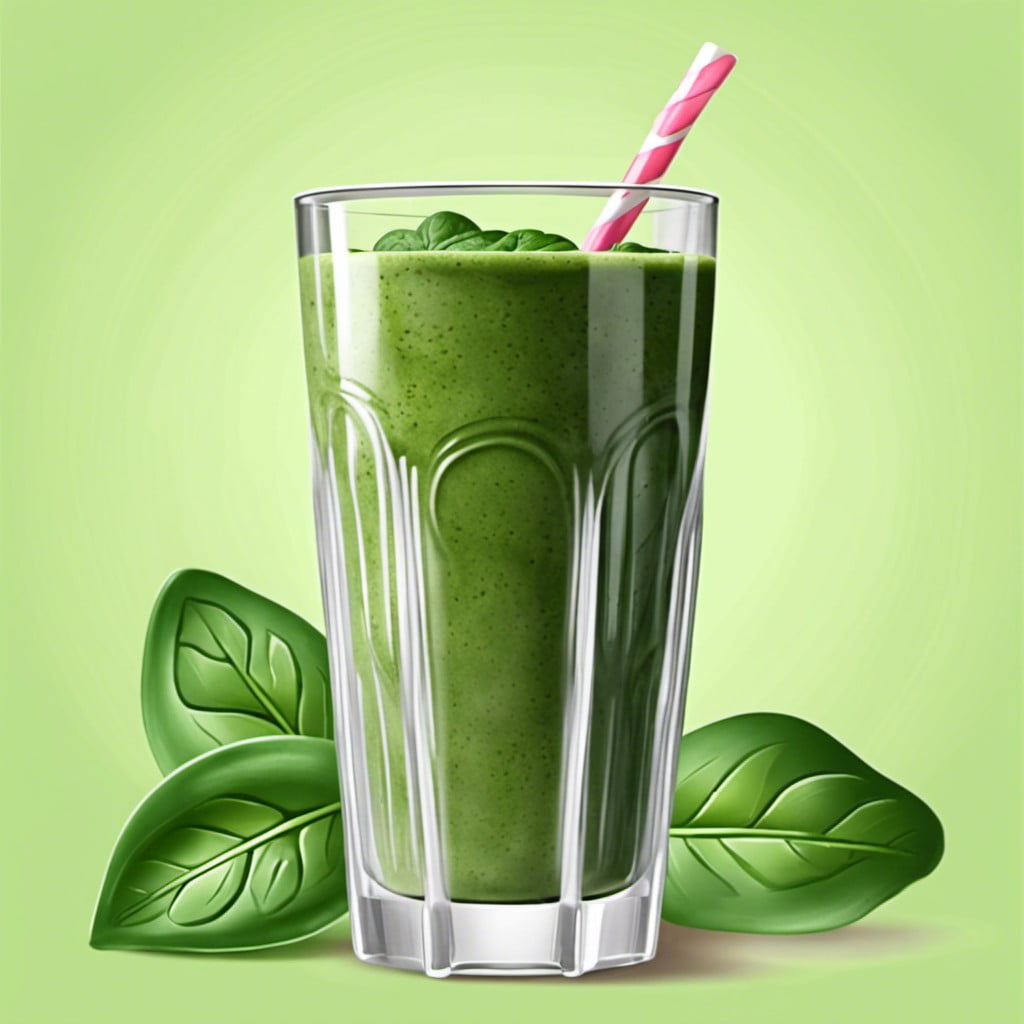
Going further down our list, making a smoothie that combines nutrient-rich spinach with a non-dairy base like almond, soy, or coconut milk is a satisfying treat for your taste buds. This blend offers a low-FODMAP solution, which means it is unlikely to worsen IBS symptoms.
Here are some points to consider:
- Spinach is classified as a low-FODMAP food, typically gentle on the stomach and rich in beneficial vitamins and minerals.
- Non-dairy milk alternatives such as almond, soy, or coconut milk are ideal for those with lactose intolerance, a common issue in IBS sufferers.
- Carefully selecting your smoothie add-ins is key. Stick with other low-FODMAP fruits such as kiwi or blueberries for a hint of sweetness without triggering symptoms.
- Although tasty, keep your smoothie size moderate to avoid putting too much volume in your stomach at one time.
- Remember to blend your smoothie thoroughly as this can help ease digestion.
Armed with these insights, you can create a belly-friendly treat that doesn’t skimp on flavor or nutrients.
Baked Rosemary Chicken Breast

With its tender texture and aromatic flavors, this dish is not only scrumptious but also supportive for those managing an irritable bowel syndrome (IBS) diet. Here’s why:
- The lean protein in chicken serves as a stable energy source to keep you feeling satisfied and aids in muscle repair and growth.
- Rosemary, known for its fragrant aroma, adds more than just taste. It offers antioxidants and anti-inflammatory compounds beneficial to gut health.
- As a low-FODMAP meal, it is less likely to trigger any IBS symptoms, given its minimal levels of fermentable carbohydrates.
Note: Avoid making your chicken dish too spicy, as high-fat and spicy foods can lead to discomfort for some individuals with IBS.
Easy and quick to prepare, this dish appeals to both your taste palate and your busy schedule, making it a perfect and practical choice for an IBS-friendly snack or meal.
Remember, portion control is key. A moderate serving can provide the nutrients an individual with IBS requires without triggering a flare-up.
For preparation, aim for baking to maintain the chicken’s nutrients without adding unnecessary fats. Pair this dish with a side of steamed veggies, such as carrots or zucchini, for a complete, balanced, and delicious IBS-friendly meal.
Roasted Turmeric Cauliflower

Made by tossing cauliflower florets in a heart-healthy blend of olive oil, turmeric, and a light sprinkling of salt, these little gems are then oven-roasted to bring out their natural sweetness.
Turmeric is packed with curcumin, a compound lauded for its anti-inflammatory benefits – ideal for IBS sufferers.
The process of roasting adds depth and complexity to the flavor, creating a dish that is both satisfying and gentle on the stomach.
Meanwhile, cauliflower is a low-FODMAP vegetable, which means it’s less likely to trigger IBS symptoms.
The end result is a simple, healthful, and delectably crunchy treat, ready in about 20 minutes, perfect for a midday nibble or evening snack.
Sautéed Bell Peppers and Tofu
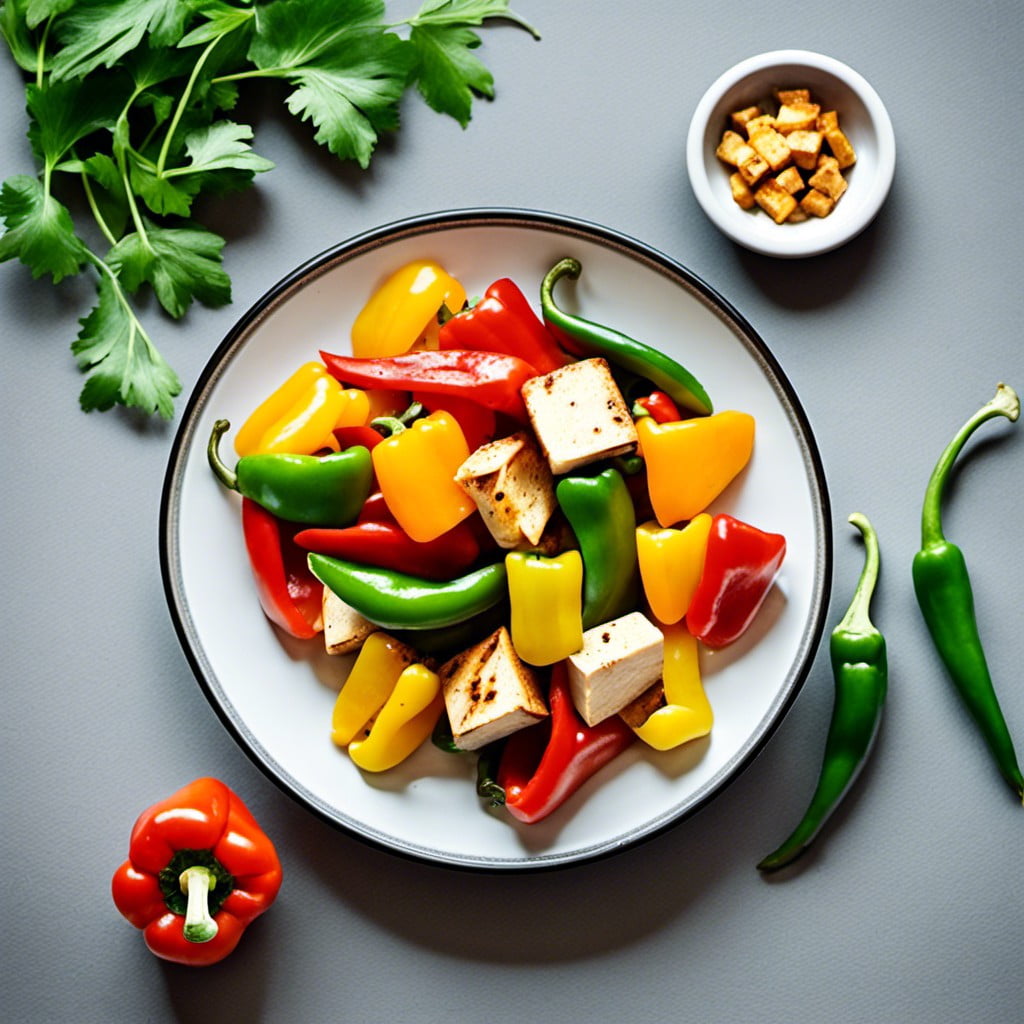
Featuring an assortment of colors, the bell peppers add not only vibrancy but also a crunch that pairs perfectly with the soft, slightly chewy texture of tofu. Start by thinly slicing the peppers, and while they sauté in a splash of olive oil, drain and cut your tofu into bite-size pieces.
For IBS-friendly flavor, consider adding a drizzle of low-sodium soy sauce or a sprinkle of dried basil. This combination serves as a rich source of vitamin C from the peppers and protein from the tofu – effectively satiating and gentle on your digestive system.
Remember: always opt for firm tofu that is easier to handle and holds up well during the sautéing process. Also, use cookware with a non-stick surface to avoid using excessive amounts of oil.
This simple yet nutrient-dense snack can easily be made in larger quantities for convenient grab-and-go options throughout the week.
Pumpkin Seed and Cranberry Trail Mix
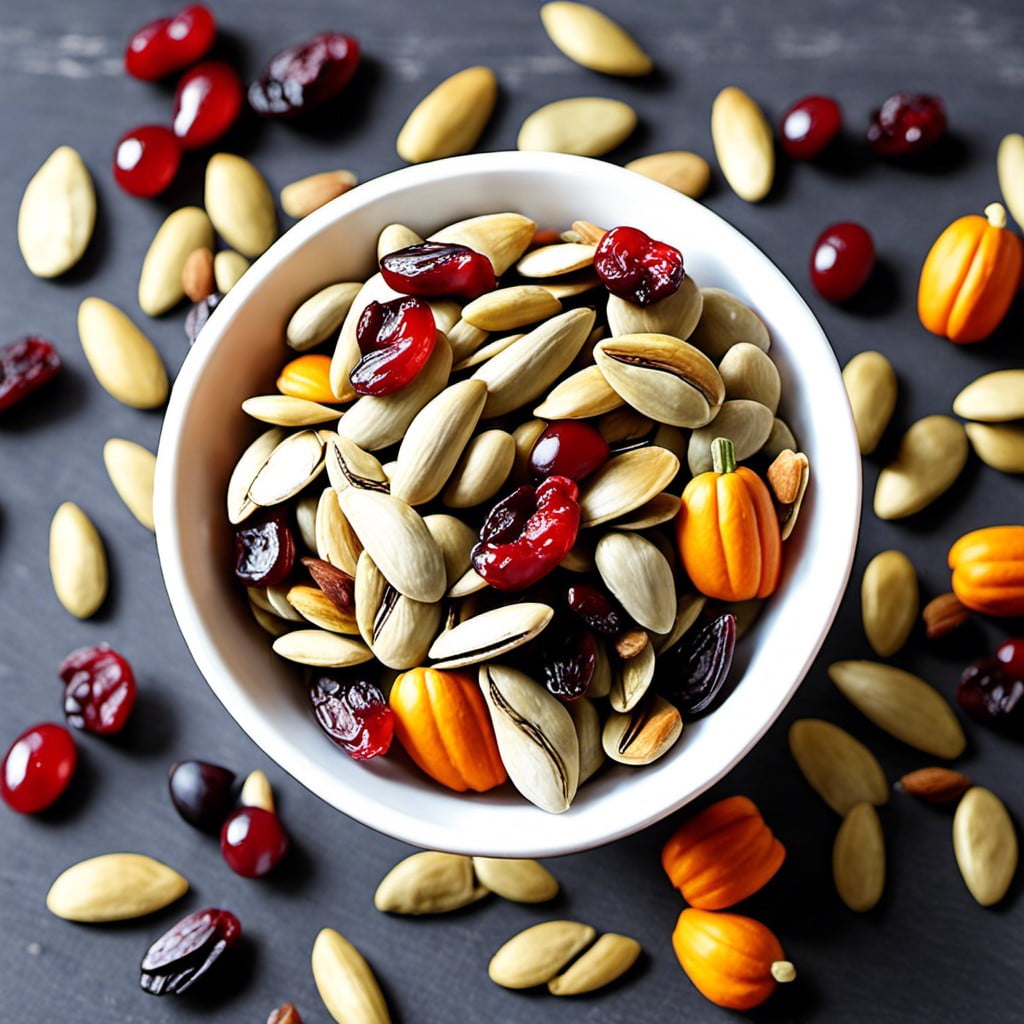
This invigorating mix brings together the slightly sweet flavor of dried cranberries and the robust earthiness of pumpkin seeds, known for their essential healthy fats. It’s an easily portable and convenient snack, making it an ideal choice for those on-the-go days.
Additionally, cranberries and pumpkin seeds are both low in FODMAPs- a group of carbohydrates known to cause digestive issues, particularly in people with IBS.
Tossing a handful of this blend into a small zip bag for the day ensures that a safe, satisfying snack is always within reach. To keep things exciting, consider adding a few extra ingredients like unsweetened coconut flakes or a sprinkle of dark chocolate chips. However, always be cautious of added sugars or high-FODMAP ingredients in store-bought versions. Opting for a homemade concoction can reconcile this concern, plus, it allows tailoring to specific tastes!
Remember, balance is key to managing IBS symptoms, therefore, moderation should be maintained even with IBS-friendly snacks. Enjoy a serving of pumpkin seed and cranberry trail mix as part of a diverse, balanced diet that suits individual needs.
Homemade Sweet Potato Chips
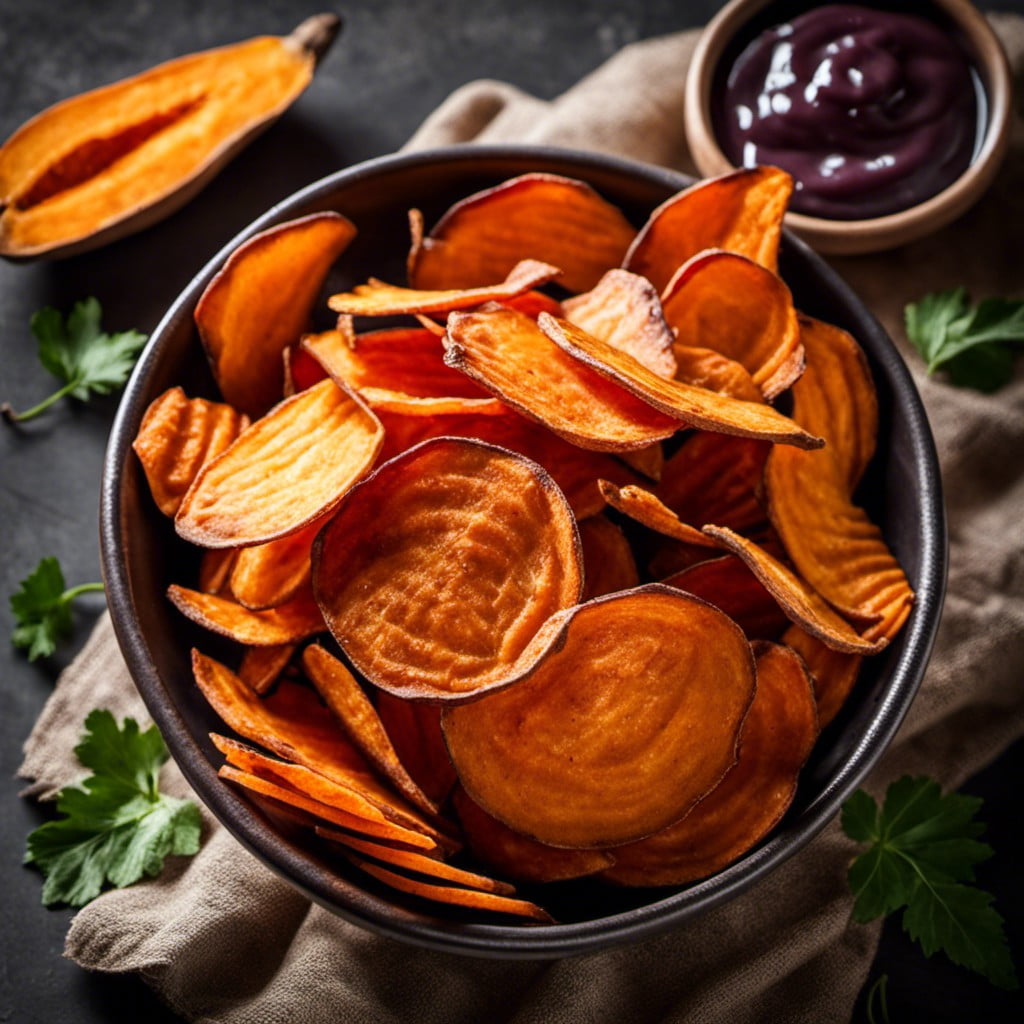
Begin by thinly slicing your sweet potatoes – ensure each piece is the same thickness for even cooking. Rinse the slices in cold water, wiping away any starch on the surface, then pat dry thoroughly. Toss the slices in a bowl with a minimal amount of olive oil, just enough to lightly coat each piece – excessive oil can lead to soggy chips.
Preheat your oven to a temperature of 250 degrees Fahrenheit; the lower temperature allows the chips to crisp up without burning. Arrange your potato slices in a single layer on a baking sheet lined with parchment paper, making sure they don’t overlap. Sprinkle them lightly with sea salt, black pepper, and if you prefer a touch of spice, a dusting of cayenne pepper.
Bake the chips for approximately 2 hours, turning them at the one-hour mark, until they’re golden brown and crispy. It’s key to let the batch cool completely once removed from the oven before enjoying them. This resting period allows the chips to reach their peak in terms of crispness, maximizing the delightful crunch in every bite.
Remember, homemade sweet potato chips can be stored in an airtight container at room temperature for up to a week, ensuring that you have a delicious low-FODMAP snack on hand whenever the craving strikes.
Grilled Salmon With Dill

With its abundance of Omega-3 fatty acids, grilled salmon stands out as a heart-healthy addition to your snack menu. Cooking it on the grill imparts a smoky flavor that enriches the dish’s overall appeal. Meanwhile, the earthiness of dill complements salmon’s unique taste without overshadowing it.
To prepare, lightly season the salmon fillets with salt and pepper before adding a generous sprinkle of dill. Grill each side for about four minutes until the fish is slightly opaque in the middle. This ensures that the salmon retains its flavor while staying moist and tender.
Eating this snack will not only satisfy your hunger, but also fuel your body with necessary nutrients. It’s a winning choice for those following the IBS diet, for its high protein and low-FODMAP content. Remember to control your portion sizes – even healthy snacks can cause discomfort if overeaten.
